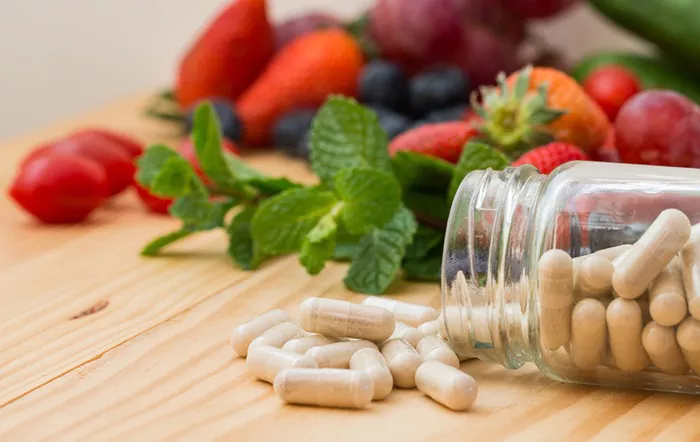As men age, their nutritional needs change. A healthy diet can help maintain energy, muscle mass, and overall well-being. Older men should focus on nutrient-rich foods that support heart health, bone strength, and mental function. This article will guide you through the 8 best diet for older men, including what to eat and what to avoid.
Why Nutrition Matters for Older Men
Aging affects metabolism, digestion, and muscle mass. Poor eating habits can lead to weight gain, weak bones, and chronic diseases. A balanced diet helps prevent these issues. It also improves energy levels and mental sharpness.
Common Health Concerns in Older Men
- Heart Disease – High blood pressure and cholesterol increase risks.
- Prostate Health – Diet affects prostate function.
- Muscle Loss – Protein intake helps maintain strength.
- Bone Weakness – Calcium and vitamin D prevent fractures.
- Diabetes Risk – Blood sugar control is essential.
Key Nutrients for Older Men
Older men need certain nutrients more than younger men. Here are the most important ones.
Protein
Muscle loss speeds up after age 50. Protein helps maintain muscle and strength. Good sources include:
- Lean meats (chicken, turkey)
- Fish (salmon, tuna)
- Eggs
- Beans and lentils
- Low-fat dairy (Greek yogurt, cottage cheese)
Fiber
Fiber aids digestion and prevents constipation. It also lowers cholesterol. High-fiber foods include:
- Whole grains (oats, brown rice)
- Fruits (apples, berries)
- Vegetables (broccoli, carrots)
- Nuts and seeds
Calcium and Vitamin D
Bones weaken with age. Calcium and vitamin D keep them strong. Best sources:
- Milk and fortified plant milks
- Cheese and yogurt
- Leafy greens (kale, spinach)
- Fatty fish (sardines, mackerel)
Healthy Fats
Not all fats are bad. Omega-3s support heart and brain health. Good fats come from:
- Avocados
- Olive oil
- Nuts (almonds, walnuts)
- Fatty fish (salmon, trout)
Antioxidants
Antioxidants fight inflammation and protect cells. They are found in:
- Berries (blueberries, strawberries)
- Dark chocolate (in moderation)
- Green tea
- Colorful vegetables (bell peppers, tomatoes)
Best Foods for Older Men
Fatty Fish
Fish like salmon and mackerel are rich in omega-3s. They lower heart disease risk and support brain health. Aim for two servings per week.
Leafy Greens
Spinach, kale, and Swiss chard provide vitamins A, C, and K. They also contain fiber and antioxidants.
Whole Grains
Oats, quinoa, and whole wheat bread keep energy levels steady. They also help with digestion.
4. Lean Proteins
Chicken, turkey, and eggs provide high-quality protein. Plant-based options like beans are also great.
Nuts and Seeds
Almonds, walnuts, and chia seeds offer healthy fats and fiber. A small handful daily is enough.
Low-Fat Dairy
Milk, yogurt, and cheese supply calcium and vitamin D. Choose low-fat versions to avoid excess saturated fat.
Berries
Blueberries, raspberries, and blackberries are packed with antioxidants. They support memory and heart health.
Water
Dehydration is common in older adults. Drink plenty of water throughout the day. Herbal teas and broths also help.
Foods to Limit or Avoid
Some foods harm health as men age. Limit these:
Processed Meats
Bacon, sausages, and deli meats contain high sodium and preservatives. They increase heart disease risk.
Sugary Foods and Drinks
Soda candy, and pastries spike blood sugar. Too much sugar leads to weight gain and diabetes.
Refined Grains
White bread, white rice, and pasta lack fiber. They cause blood sugar swings.
Excessive Alcohol
Too much alcohol harms the liver and increases blood pressure. Limit to one drink per day.
High-Sodium Foods
Canned soups, chips, and fast food raise blood pressure. Choose low-sodium options.
Meal Plan for Older Men
Here’s a simple daily meal plan:
Breakfast
- Oatmeal with berries and walnuts
- Scrambled eggs
- Green tea
Lunch
- Grilled chicken salad with leafy greens, avocado, and olive oil dressing
- Whole-grain bread
- Yogurt with honey
Dinner
- Baked salmon with quinoa and steamed broccoli
- Side of roasted sweet potatoes
- Glass of low-fat milk
Snacks
- Apple with almond butter
- Handful of mixed nuts
- Carrot sticks with hummus
Tips for Healthy Eating Habits
- Eat Smaller, Frequent Meals – Helps digestion and energy levels.
- Stay Hydrated – Drink water even if not thirsty.
- Read Labels – Avoid foods high in sugar, salt, and unhealthy fats.
- Cook at Home – More control over ingredients.
- Limit Eating Out – Restaurant meals are often high in calories and salt.
Supplements for Older Men
Some nutrients are hard to get from food alone. Common supplements include:
- Vitamin D – Many older men don’t get enough sunlight.
- Calcium – If dairy intake is low.
- Omega-3s – For those who don’t eat fish.
- Magnesium – Supports muscle and nerve function.
Always consult a doctor before taking supplements.
Exercise and Diet Go Together
A good diet works best with physical activity. Strength training prevents muscle loss. Walking improves heart health. Even light exercise helps.
Final Thoughts
The best diet for older men includes lean proteins, whole grains, healthy fats, and plenty of fruits and vegetables. Avoid processed foods, excess sugar, and too much salt. Staying hydrated and active also plays a big role.
Eating well helps older men stay strong, sharp, and full of energy. Small changes in diet can lead to big health benefits. Start today for a healthier tomorrow.
Related topics:
- 7 Best Homeopathic Medicines for Low Testosterone
- Top 4 Testosterones Injections For TRT
- The Best Testosterone Booster for Older Men


